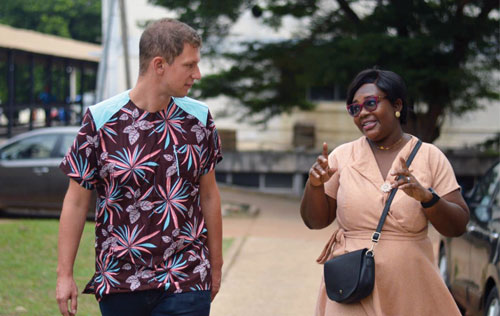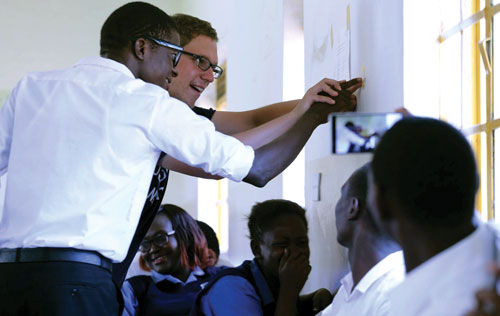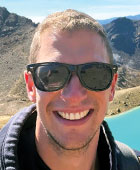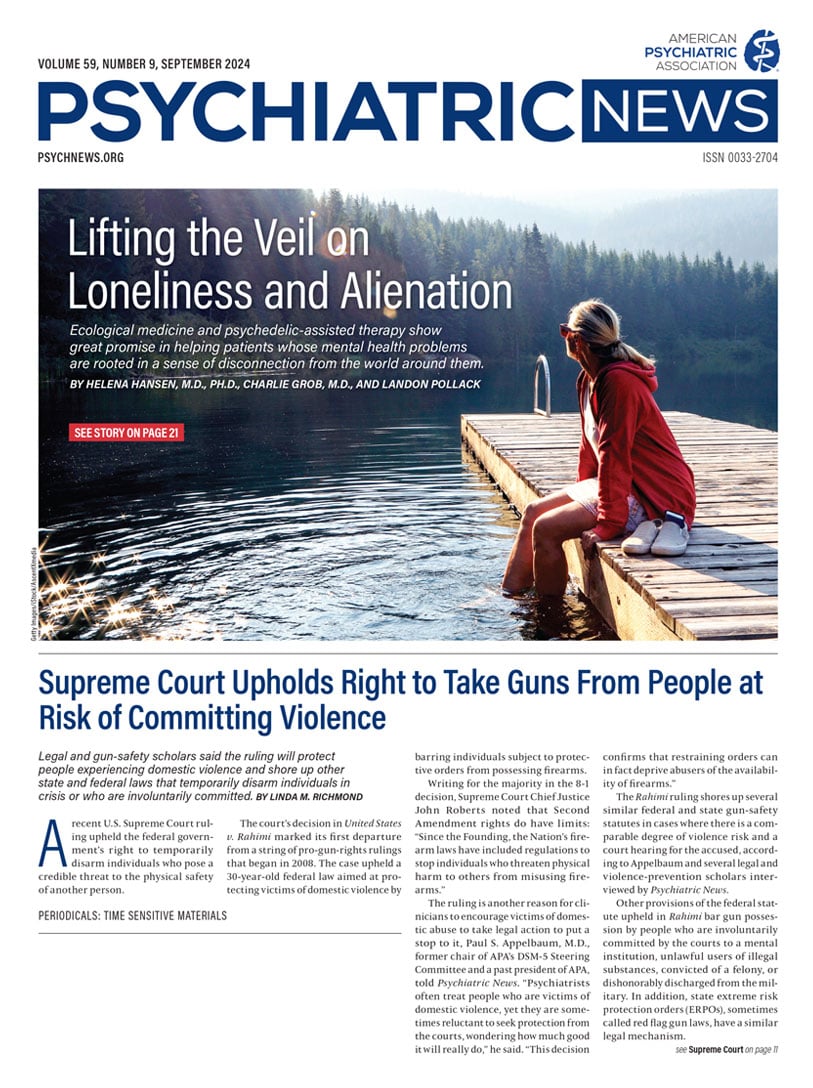When I was a child, my family and I were able to travel within Europe for vacation, and I was always fascinated by different countries and cultures. This fascination has only grown due to my work in mental health, because arguably no other medical discipline is as dependent on a cultural understanding as psychiatry. No matter where you test someone for HIV, the test results should be the same; however, our understanding of mental health and mental illness varies by culture. What is perceived as pathological in one culture—for example, hearing voices—is considered a normal experience in another culture.
I was also always interested in understanding how different countries approach mental health care from a system and policy level. My interest in these topics influenced me to practice medicine and psychiatry and to conduct research in different countries around the globe, including Germany, where I attended medical school; the United States, where I did research and residency and studied public policy; New Zealand, where I did a residency elective global mental health rotation for six months; and Ghana as well as Kenya, where I had a variety of (mental) health- and policy-related experiences.
Learning Across Cultures
My journey in Ghana began when I was 19 years old and had just finished my first year of medical school. I found an opportunity for a medical internship through an organization that offered a variety of internships in African countries. I randomly ended up in Ghana, which was one of the best experiences I could have ever asked for. Even as I write this, I still feel the excitement of my first visit to this beautiful West African country and the certainty of returning to see my friends and host family again and to complete another medical internship in a hospital. At the same time, I realized that the Ghanaian community members saw only a small percentage of the money I paid the organization and that the help I could offer as a first-year medical student did not necessarily align with the community’s needs.
After working in African countries for almost 15 years, I realize how naïve this sounds. At the same time, I recognize that many of the people I have met on my travels, independent of demographic and identity factors and level of seniority, go abroad for similar reasons: to do “good.” The reflex to “help” is at least to some extent related to the information about low- and middle-income countries that we have easy access to in high-income countries (or that we decide to pay attention to). How often do you hear about Africa as a continent of opportunities rather than a continent of suffering and misery? In addition, most trips abroad are not bidirectional in nature, but rather, it is people from high-income countries who travel to low- and middle-income countries; visa challenges and financial constraints prevent people from low- and middle-income countries from joining, teaching, educating, and mentoring activities in high-income countries. We are missing out on so much, and often do not know what we do not know (or we decide to just ignore our colleagues’ expertise and skills).
My trips to Ghana (and later to Kenya) inspired me to start a nongovernmental organization (NGO) that creates opportunities and spaces to learn from and with each other across cultures. During my travels, I realized quickly that many community members had great ideas in terms of improving the mental health situation and closing the mental health treatment gap in their respective communities; however, many of these community members acted in isolation and lacked a supportive and nurturing environment. My NGO understands itself as a community mental health incubator that supports community-member-led mental health initiatives through capacity building and seed funding. The NGO is co-led by colleagues in Ghana, Kenya, and Germany, and enables community members from those countries to collaborate and travel internationally for educational and research purposes.
Curious, Open-Minded Engagement
But you do not need to start your own NGO for an away rotation or international work trip to be fulfilling. Rather, what is needed is utilizing two core skills psychiatrists have: active listening and curious, open-minded engagement. Once community members trust you, they will tell you the challenges and barriers they have identified, the solutions they have identified, and the support they need. And they will welcome you into their communities.
Whenever my NGO sends people abroad, I give them a few pieces of advice. First, being abroad can be challenging. Culture shocks and homesickness are real, and feeling out of your comfort zone is not only expected but healthy. Keep in mind what sparked your interest in going abroad in the first place and how your desire to work overseas is tied to your core values and beliefs.
Next, take a back seat and remember that while any helping hand is appreciated, the hospitals and communities you are serving have functioned without your presence. Your activities should fit in with what is needed on the ground rather than expecting community members to adapt to your needs. Many of the challenges you will see are not unique to the country in which you will work but exist in the United States as well—oftentimes right on our doorsteps. Adopt and support a mutual capacity-building mindset—don’t think about what you can extract from other countries (including knowledge), but rather focus on how to involve in-country experts in your pursuits.
Lastly, sustainability is key. What happens after you leave the project side? Before, during, and after the exchange, talk to people who make a living from sustainable international work. Once you return home, continue your efforts—for example, in the form of integrating what you have learned into your clinical work and advocacy efforts.
For me, working abroad has not only made me a better psychiatrist but has also connected me with the most wonderful people around the world. What started with a medical internship at the age of 19 in Ghana has evolved into more than annual visits to different countries and having lived and worked abroad. I have my biological family in Germany and host families around the globe with whom I live through ups and downs. I cannot wait to see my host families later this year! ■



